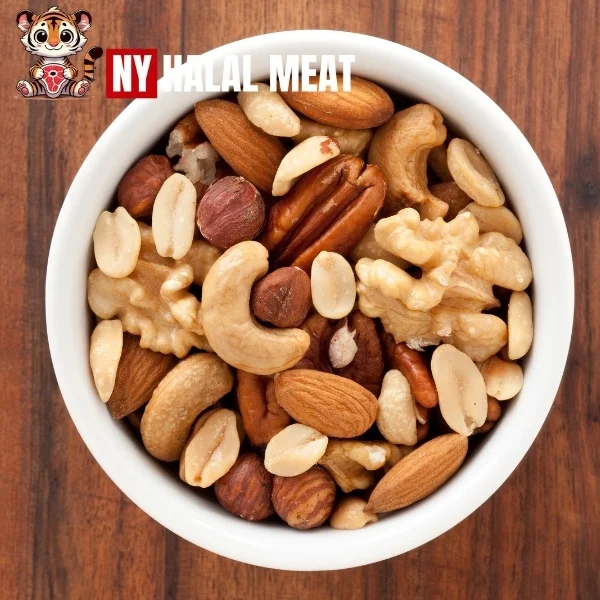Can Muslims Eat Nuts in the USA? A Comprehensive Guide
Are Nuts Naturally Halal?
In general, most nuts such as almonds, cashews, peanuts, walnuts, and pistachios are considered halal because they come from plants and do not contain any prohibited substances. These nuts are rich in proteins, healthy fats, and other beneficial nutrients, making them an excellent part of a healthy diet.
However, while nuts themselves are halal, certain factors in the processing and packaging of nuts can impact whether they remain halal. It’s important to be aware of how they are handled to ensure they meet halal standards.
Considerations When Buying Nuts in the USA
1. Cross-Contamination
One of the key concerns when purchasing nuts is the potential for cross-contamination with non-halal substances. Many nuts are processed in facilities that also handle non-halal foods like pork or alcohol-based products. This could lead to contamination during processing, packaging, or storage.
To ensure that your nuts remain halal, look for products that are specifically labeled as halal-certified. These products are produced in facilities that comply with halal standards, reducing the risk of contamination.
2. Ingredients and Additives
Some nuts come with added ingredients like preservatives, flavorings, or oils that could affect their halal status. For example, certain roasted or flavored nuts may be cooked in non-halal oils or contain artificial flavorings derived from alcohol. Additionally, some sweetened nuts or candies may include ingredients like gelatin, which is often derived from non-halal sources.
Always check the ingredient list before purchasing any processed nuts. Look for nuts that are labeled as halal-certified to ensure that no non-halal substances are present.
3. Halal Certification
To ensure that the nuts you purchase are truly halal, look for reliable halal certification. In the USA, various halal certifying bodies ensure that products comply with Islamic dietary laws. Reputable certifiers such as the Islamic Food and Nutrition Council of America (IFANCA) and Halal Food Standards Alliance of America (HFSAA) guarantee that the product has been thoroughly vetted for halal compliance.
Halal certification marks are an excellent way to confirm that the product is free from non-halal ingredients and processed in a halal facility.
4. Non-Halal Additives
Processed or flavored nuts, such as chocolate-covered or sweetened varieties, may contain non-halal additives like alcohol-based flavorings or animal-derived substances like gelatin. These additives can render the nuts non-halal. Be especially cautious when purchasing pre-flavored or packaged nuts, as they may include ingredients that are not permissible in Islam.
Look for halal-certified brands when buying processed nuts to avoid the risk of consuming non-halal substances.
Where to Find Halal Nuts in the USA

In the USA, you can find halal-certified nuts both in local supermarkets and online. Many large retailers, such as Whole Foods, Walmart, and Target, now carry halal products, including nuts, especially in areas with a large Muslim population. You may also find halal nuts at specialty grocery stores catering to the Muslim community.
For more convenience, many online retailers sell halal-certified nuts, including platforms like Amazon, iHerb, and HalalWorldDepot. These websites offer a wide selection of nuts that are certified halal, making it easy for Muslims across the USA to find suitable products.
Popular Halal Nut Brands in the USA
- Saffron Road: Known for a wide range of halal-certified snacks, including nuts.
- Al-Madina Halal: A company specializing in halal-certified dry fruits and nuts.
- Bare Snacks: Offers a selection of halal-certified nuts and snacks.
- Tasty Bite: Known for offering a variety of halal-certified products, including nuts.
Always check the product packaging to confirm halal certification, and look for clear labeling indicating that the nuts are free from non-halal ingredients and processed according to Islamic guidelines.
Conclusion
In conclusion, Muslims can enjoy a wide variety of nuts in the USA, as long as they ensure the products are halal-certified. While raw and unsalted nuts are typically halal, it’s important to be cautious of processed or flavored nuts that may contain non-halal ingredients or be at risk of cross-contamination. By choosing halal-certified products and checking ingredient lists carefully, Muslims can confidently incorporate nuts into their diet while adhering to Islamic dietary laws.


